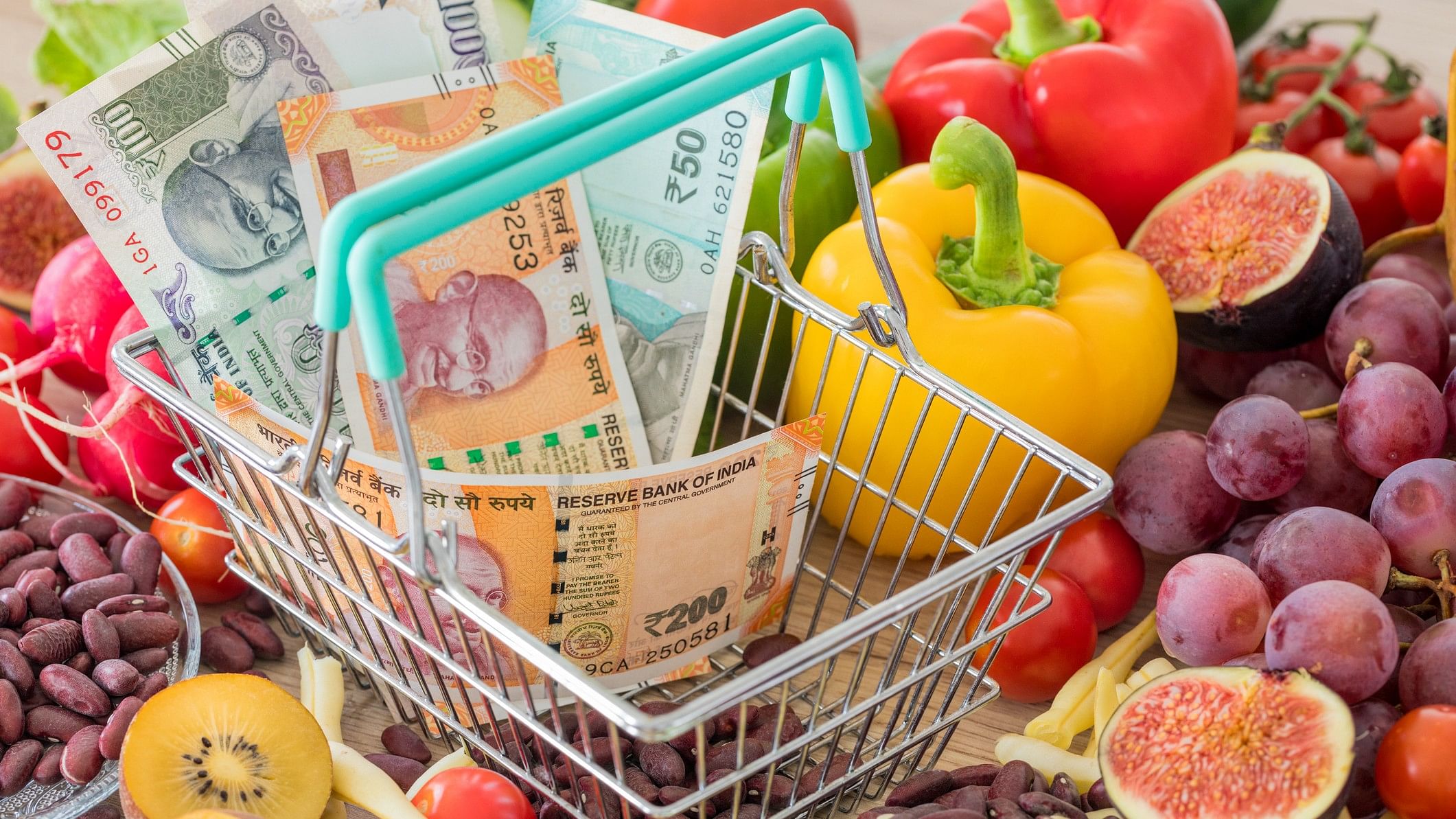
Representative image of retail inflation.
Credit: iStock Photo
New Delhi: Retail inflation eased to 4.87% in October from 5.02% recorded in the previous month, helped by a sharp moderation in the prices of fuel, manufactured products and kitchen staples like tomato and potato, even though onion and pulses became costlier.
The Consumer Price Index (CPI)-based retail inflation has fallen sharply in the past two months after surging to a 15-month high of 7.44% in July. In August too, it had remained elevated at 6.83% due to a surge in food prices, notably tomato.
The Reserve Bank of India’s comfort band for inflation is 2%-6%. The October number, as per official data released on Monday, is the lowest since June 2023, which was incidentally 4.87%.
The price of tomatoes, which soared to over Rs 250 per kg in July-August, dropped to around Rs 20 in October. Tomato prices declined by 19% month-on-month in October, while potato prices remained almost unchanged.
However, the price of onions rose by 15% in October when compared with the previous month.
Retail food inflation, which accounts for nearly half of the overall CPI basket, eased marginally to 6.61% in October from 6.62% in the previous month. The impact of the decline in vegetable prices and some other food items was offset by the rise in prices of pulses and onions.
Core inflation — or inflation excluding food and fuel — eased to a 43-month low of 4.2% in October from 4.5% the month before.
“The moderation provides some relief, especially as the core inflation has remained comfortable,” said Upasna Bhardwaj, chief economist at Kotak Mahindra Bank.
This is the second straight month that inflation has remained within the RBI’s tolerance band. In its bi-monthly policy review last month, the central bank’s monetary policy committee kept the key interest rates unchanged and reaffirmed to bring down inflation to 4%.
Despite a sharp moderation in the last couple of months, retail inflation has been above the RBI’s medium-term target of 4% for 49 months in a row.
“For the December quarter, we expect some softening in food inflation with the Kharif harvest entering the market, aided by government intervention,” said Dharmakirti Joshi, chief economist at CRISIL. “Oil prices remain an unknown which could play spoilsport if the Middle East conflict escalates,” he added.
However, Devendra Kumar Pant, chief economist at India Ratings and Research, said below par monsoon rainfall is likely to have an impact on cereal and pulses’ prices in the coming months.
Manufacturing sector surges
While the actual numbers are yet to be computed a survey by FICCI showed that the country’s manufacturing sector growth may have accelerated in the second quarter of the financial year from the 4.7% expansion recorded in April-June period led by strong performance in electronics auto machine tools and white goods segments.